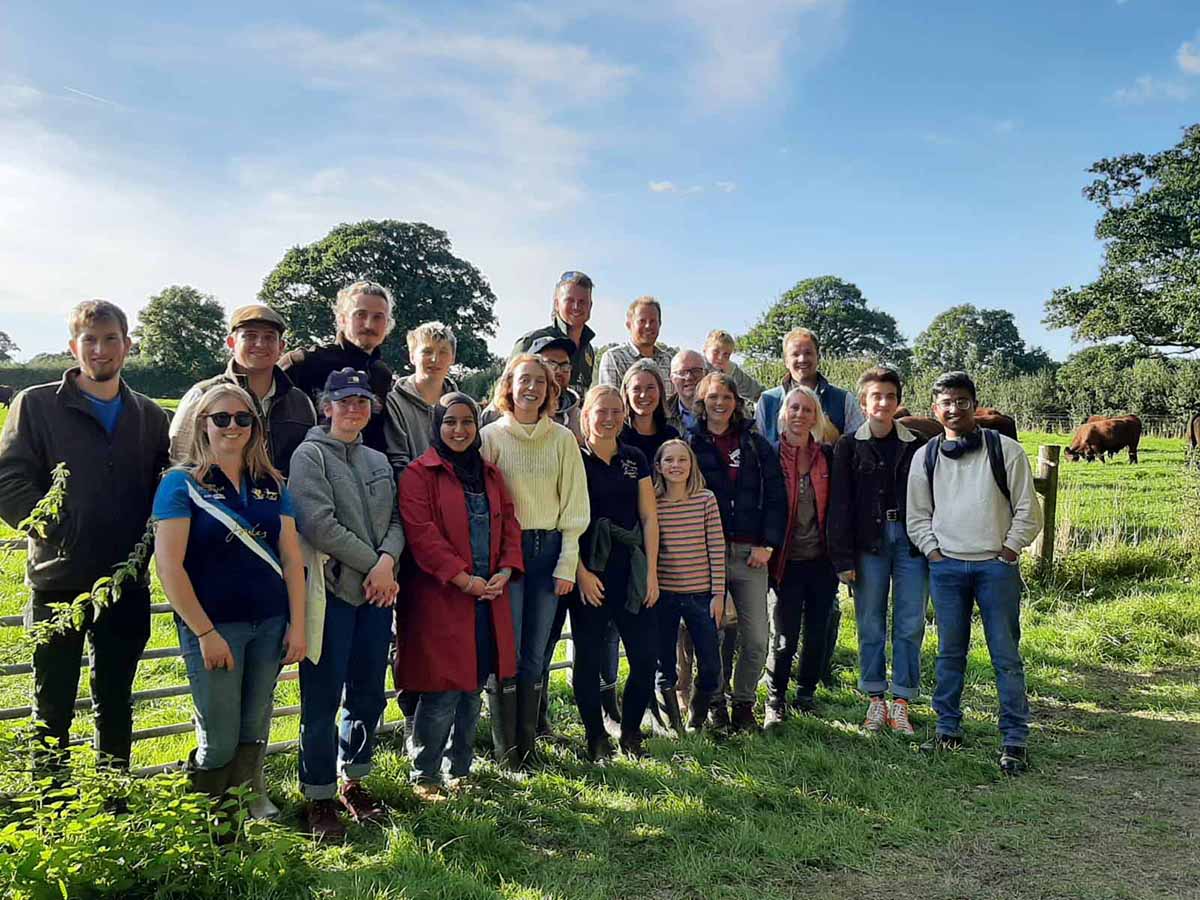Festive food shortages and the challenges facing British farmers have intensified messages behind a new project aimed at uniting young people to highlight the need for equal access to sustainable, healthy and affordable food.
The How Farming Can Cool the Planet project, which is funded by Farming for the Future, is a collaboration between The National Federation of Young Farmers’ Clubs (NFYFC), Students Organising for Sustainability (SOS-UK) and FLAME (the youth branch of the Landworkers Alliance) and involves young people from a diverse range of backgrounds.
The project, which started earlier this year and runs until June 2023, is bringing together students, young farmers and FLAME, the youth branch of Landworkers Alliance, to exchange views and ideas.
The aim of the project is to engage young people in the food and farming movement through their existing passion to tackle the climate crisis.
In a survey of 1200 students, carried out by SOS-UK in 2021, 78% said that if they knew more about the environmental impact of food production, they would be willing to make changes to reduce their impact.
Young people involved in the three organisations have been attending organised farm visits to see agroecological farming in practice and learning how food can be produced while bringing benefits to the natural environment.
A multi-media resource will map the journey of those involved in the project, sharing experiences, perceptions and positive messages. The aim is to inspire young people by personal learning experiences and sharing the aspirations of those who feel passionately about food, farming and the
environment.
The three organisations are collaborating to inspire young people to consider the many options for farming, food production and caring for the environment.
Lawrence Weston, a young person involved in FLAME who has taken part in the farm visits, said:
“It’s been really great to meet like-minded young people during the How Farming Can Cool the Planet project. I’ve met people who I might not ordinarily come into contact with, but share many of the same values. The knowledge sharing aspect of the project has been insightful.”
Young people involved in the project have produced a series of infographics to use on social media to kick-start awareness of the project’s aims and to share thoughts about the importance of food, farming, and the environment.

Ruihan Zhu, a student at the University of Oxford, said:
“The ‘How Farming Can Cool the Planet’ project provides an opportunity for students to learn more about the agrifood system. Through field visits and interactive activities, I have gained new knowledge of sustainable agriculture outside the classroom.”
For young farmers adapting to the government’s new Environmental Land Management Schemes (ELMS), the project has given them the chance to share their experiences and gain further knowledge about sustainable food production.
Farm visits have so far included a tour of Abbey Home Farm in Gloucestershire as part of a visit to the Land Skills Fair and a guided tour of the Knepp Castle Estate and its regenerative farming project
in Sussex.
The Chair of NFYFC’s Agriculture and Rural Issues group Charlotte Garbutt said the project was uniting young people to better understand food production challenges at a critical time:
“With food security issues of prominence following on from Brexit, the pandemic and now the war in Ukraine, this project is highlighting the importance of sustainable food production.
The How Farming Can Cool the Planet project has enabled young farmers to share the positive work the agricultural industry is already doing to be more sustainable and to hear climate concerns from other young people. It has been a positive way to dispel myths and to demonstrate how farming can also support the environment.”
The How Farming Can Cool the Planet project has also coincided with the recent launch of the Defra new entrant pilot schemes. The schemes are offering support to young businesses through the early stages of development, nurturing entrepreneurs to further develop a business idea, encouraging innovation and growth.
Project partners are looking to share more resources in early 2023 and are organising more farm visits following on from the success of the 2022 trips.

Young people visiting the Knepp Castle estates earlier this year

